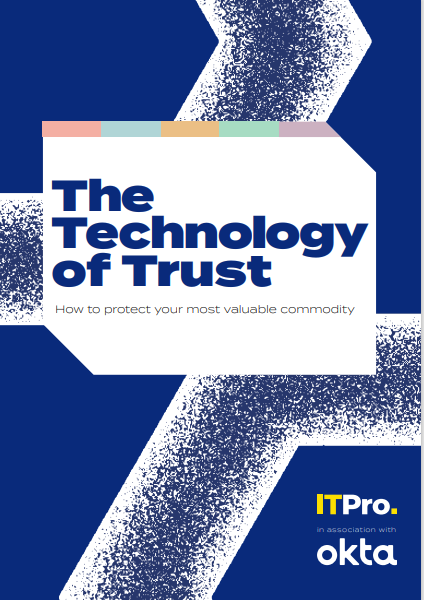Indiana notifies 750,000 after COVID-19 tracing data accessed
The state is following up to ensure no information was transferred to bad actors


Indiana officials at the Department of Health have notified around 750,000 residents that a company improperly accessed personal data from the state’s online COVID-19 contact tracing survey.
The agency said the state was notified on July 2 that a company gained unauthorized access to data, including names, addresses, dates of birth, emails, and gender, ethnicity and race data.
Indiana’s chief information officer (CIO) Tracy Barnes said the agency took “the security and integrity of our data very seriously.”
“The company that accessed the data is one that intentionally looks for software vulnerabilities, then reaches out to seek business. We have corrected the software configuration and will aggressively follow up to ensure no records were transferred,” she said.
State Health Commissioner Kris Box said the risk to residents of the state was low. “We do not collect Social Security information as a part of our contact tracing program, and no medical information was obtained,” she said.
Indiana’s Department of Health will send letters to affected residents notifying them the state will provide one year of free credit monitoring and is partnering with Experian to open a call center to answer questions. The Indiana Office of Technology also said it will continue its regular scans to ensure information was not transferred to another party.
Trevor Morgan, product manager at comforte AG, told ITPro our personal information, especially when wrapped in the context of our health records, is not something we want unauthorized people or companies to access.
Sign up today and you will receive a free copy of our Future Focus 2025 report - the leading guidance on AI, cybersecurity and other IT challenges as per 700+ senior executives
“We place our faith in the assumption that agencies and other organizations which collect and process that data also put forward the strongest effort to guard that information. For any company like this which processes PII or PHI, data-centric security can add another, more appropriate safeguard against unauthorized access alongside more traditional perimeter-based defenses,” Morgan said.
“Methods like tokenization replace sensitive data elements with representational tokens, so even if it falls into the wrong hands the sensitive information is indecipherable and cannot be leveraged. While this incident could have been worse, we’d all feel better knowing that our sensitive personal information could never be compromised, no matter who gets their hands on it."
RELATED RESOURCE

Erich Kron, security awareness advocate at KnowBe4, told ITPro it appears the company accessed the data in a way that did not put it at risk of cyber criminals obtaining it.
“Unfortunately, ‘software configuration’ errors such as this often lead to the data being accessed by bad actors, putting the users of the systems at risk,” he said. “Incidents such as this are learning opportunities for any organization that handles sensitive data. It also drives home the need for constant security testing and for ensuring processes are in place to help protect data, especially when configuration changes are being made."
Rene Millman is a freelance writer and broadcaster who covers cybersecurity, AI, IoT, and the cloud. He also works as a contributing analyst at GigaOm and has previously worked as an analyst for Gartner covering the infrastructure market. He has made numerous television appearances to give his views and expertise on technology trends and companies that affect and shape our lives. You can follow Rene Millman on Twitter.
-
 Redefining resilience: Why MSP security must evolve to stay ahead
Redefining resilience: Why MSP security must evolve to stay aheadIndustry Insights Basic endpoint protection is no more, but that leads to many opportunities for MSPs...
-
 Microsoft unveils Maia 200 accelerator, claiming better performance per dollar than Amazon and Google
Microsoft unveils Maia 200 accelerator, claiming better performance per dollar than Amazon and GoogleNews The launch of Microsoft’s second-generation silicon solidifies its mission to scale AI workloads and directly control more of its infrastructure
-
 Scania admits leak of data after extortion attempt
Scania admits leak of data after extortion attemptNews Hacker stole 34,000 files from a third-party managed website, trucking company says
-
 Capita tells pension provider to 'assume' nearly 500,000 customers' data stolen
Capita tells pension provider to 'assume' nearly 500,000 customers' data stolenCapita told the pension provider to “work on the assumption” that data had been stolen
-
 Gumtree site code made personal data of users and sellers publicly accessible
Gumtree site code made personal data of users and sellers publicly accessibleNews Anyone could scan the website's HTML code to reveal personal information belonging to users of the popular second-hand classified adverts website
-
 Pizza chain exposed 100,000 employees' Social Security numbers
Pizza chain exposed 100,000 employees' Social Security numbersNews Former and current staff at California Pizza Kitchen potentially burned by hackers
-
 83% of critical infrastructure companies have experienced breaches in the last three years
83% of critical infrastructure companies have experienced breaches in the last three yearsNews Survey finds security practices are weak if not non-existent in critical firms
-
 Identity Automation launches credential breach monitoring service
Identity Automation launches credential breach monitoring serviceNews New monitoring solution adds to the firm’s flagship RapidIdentity platform
-
 Neiman Marcus data breach hits 4.6 million customers
Neiman Marcus data breach hits 4.6 million customersNews The breach took place last year, but details have only now come to light
-
 Pearson fined $1 million for downplaying severity of 2018 breach
Pearson fined $1 million for downplaying severity of 2018 breachNews The SEC found the London-based firm made “misleading statements and omissions” about the intrusion
